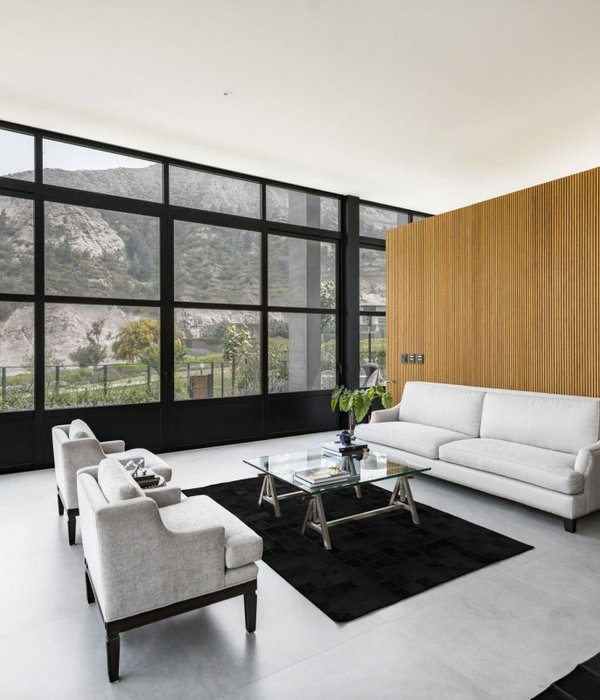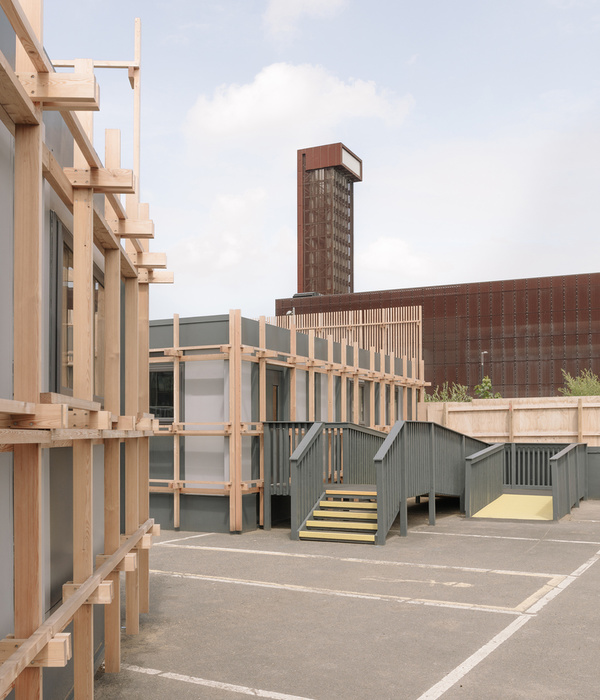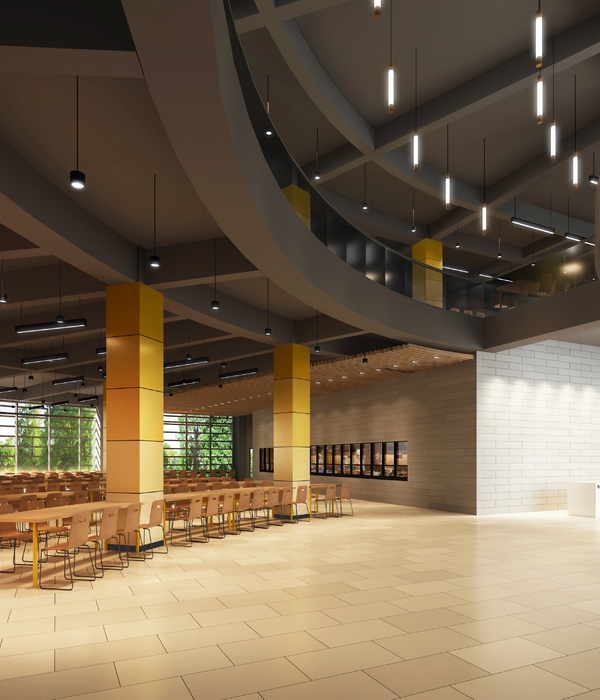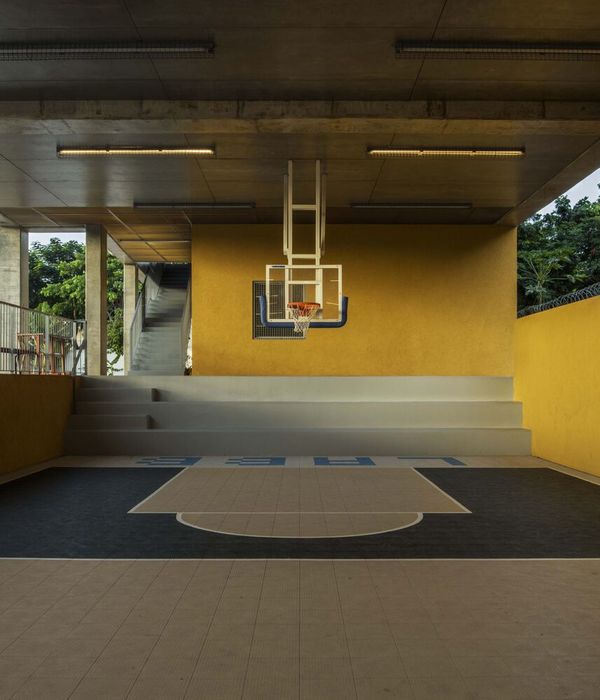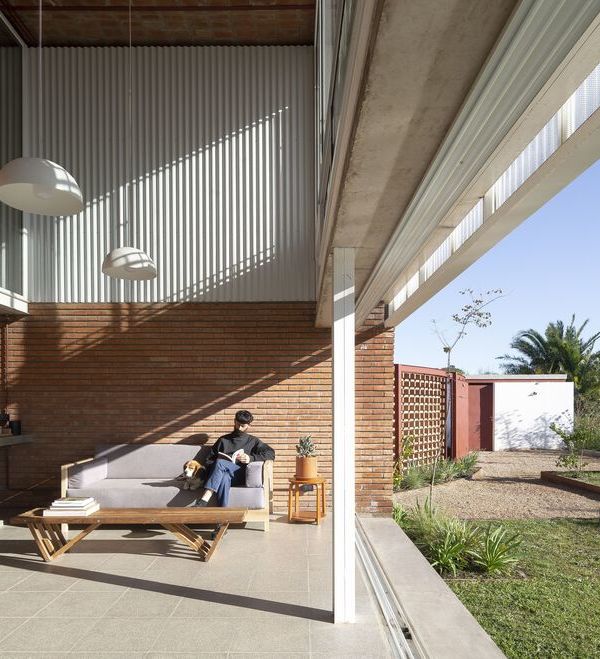In a rural area, a pilgrim's path crosses a hill inhabited by few houses and many trees. At the top, there is the plot, beautifully contemplating views and nature. The intention of planting a garden came first, the house was created to enjoy this garden.
In the plot, there was a small ruin made of exposed limestone. The house emerged from the ruin, by creating a roof slab, big enough to cover a house, and by placing some punctual support volumes to the new slab.
The volumes are rare and the space between them is fully open, to allow nature to invade the house. The slab covers both interior and exterior spaces, which erases the limits between the building and nature. The ruin keeps the service compartments, while the living and gathering spaces are entirely glazed to the exterior.
The added volumes and slab are made of traditional Portuguese brick, and they lay on top of the limestone blocks of the ruin, showing the scar between old and new. The inner spaces are dressed off chalk-painted white walls and ceilings, to reflect the exterior light, and of brick heated floors, to keep the warmth. Bathrooms and kitchens have natural local limestone surfaces. Exposed solid wood elements complete the set, to reinforce the comfort of the house.
Vale Flores house treasures the local culture, using natural and traditional materials, placing architecture in dialogue with the landscape where it rests.
{{item.text_origin}}

